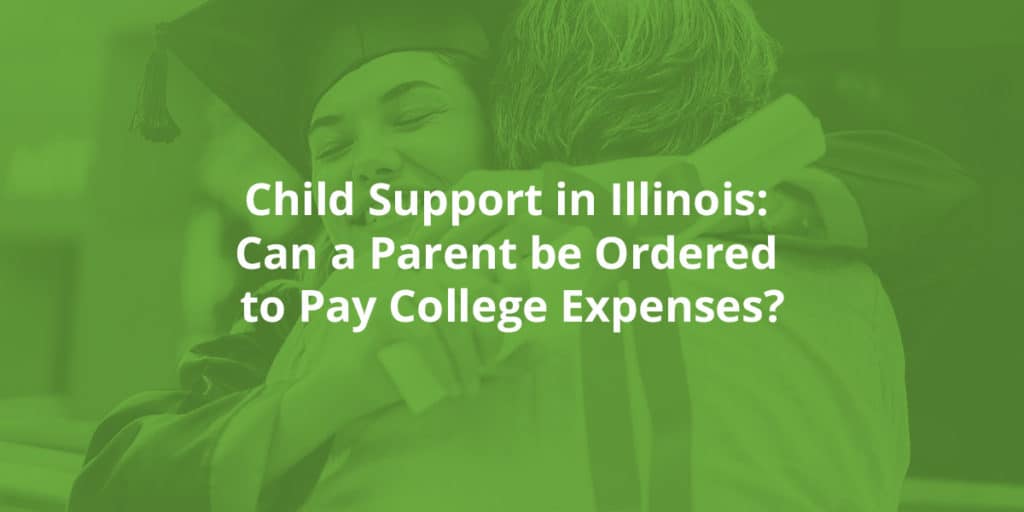
Child Support in Illinois: Can a Parent be Ordered to Pay College Expenses?
It is well known that the parents of young children are obligated to take care of them—physically, emotionally, and financially. When parents separate or divorce, Illinois law requires that the children remain supported, generally until they reach 18 years of age or graduate from high school.
However, in some cases, a parent may also be ordered to pay for a child’s college expenses. If one parent files a petition for the other parent to contribute to the child’s college expenses, the court will examine the following factors:
- Whether the parties previously entered an agreement regarding paying for college;
- The standard of living the child would have held if the parents had stayed together;
- The child’s own finances;
- Each parents’ finances; and
- The child’s aptitude for college.
Of course, the court is free to examine other factors as it sees fit, in addition to the ones listed above.
The parents of college-aged children are not automatically ordered to pay for post-high school expenses. Instead, these requests are evaluated on a case-by-case basis. If you have filed a request for payment of college expenses, the judge carefully reviews several factors in a court hearing before making a decision.
For example, the judge will examine the nature of your request. What expenses are you asking the other parent to cover? Tuition? Room and board? Travel to/from school?
The judge will examine your finances as well as the other parent’s. You will be required to fill out a financial affidavit that lays out your monthly income and expenses, and you may be asked to provide supporting documentation, such as pay stubs or tax returns.
The judge will also need to see that the other parent has the means to pay the expenses that you have requested. The judge will examine the financial affidavit and supporting documentation from him or her as well.
A parent’s remarriage and their new spouse’s income may become an issue in a parent’s ability to pay for college.
What Expenses May the Judge Order a Parent to Pay?
There are several types of expenses the judge may order a parent to pay for a college student. However, there is a limit as to how much the parent may be required to pay. Courts cap the maximum payment amount at the amount a parent would pay for a student to attend the University of Illinois at Urbana-Champaign (as an in-state student). This cap, however, only applies to room, board, tuition, and fees.
Covered expenses may include:
- Living expenses
- Room and board
- Dental and medical expenses (which may include medical insurance)
- Tuition
- Fees
- Application expenses
- Registration expenses
- Books
Other expenses may also be ordered by the judge. You may also seek contribution to college expenses if your child attends community college and resides with you.
How Long Must a Parent Pay for College Expenses?
A parent is no longer required to pay college expenses if:
- The child obtains a degree;
- The child gets married;
- The child turns 23; or
- The child’s grade point average drops below a C average.
It is important to note that a judge may not require a parent to pay for expenses that were incurred by the other parent prior to the filing of a petition. Therefore, if you wish to seek payment for your child’s college-related expenses, you should file a claim as soon as possible.
With the assistance of an experienced Illinois family law attorney, your odds of prevailing in your case are significantly strengthened. Family law attorneys know what arguments to make to a judge to support your case. In addition, they know what evidence is best to present during court to corroborate your arguments.
At Manassa Law P.C., Our Illinois Family Law Attorneys Are Experienced in Support Matters
Manassa Law P.C. is proud to serve clients at our North Barrington, Waukegan, and Hinsdale offices. To schedule your free consultation and discuss your legal needs, please contact us today.
- Income Disparity and Child Support in Illinois - January 15, 2026
- How Is Child Custody Determined in Illinois? - January 14, 2026
- How Do I Adjust Time Sharing to Accommodate New Circumstances? - January 13, 2026
